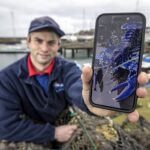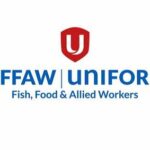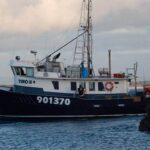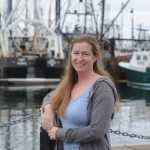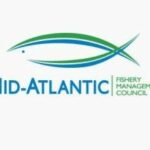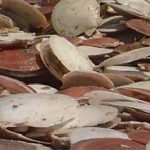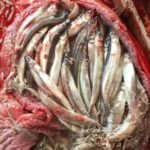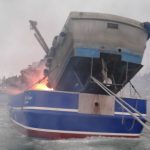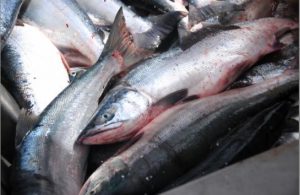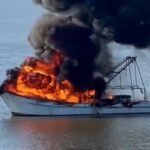Daily Archives: September 20, 2016
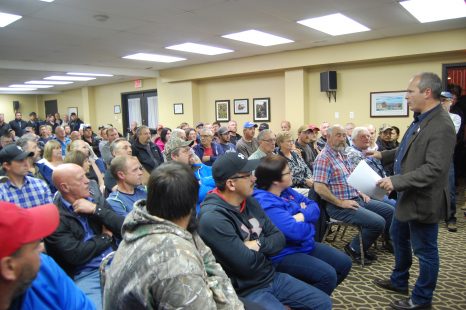
“I’m going to be part of this new union. I guarantee you that,” Hundreds attend FISHNL meeting in Clarenville
Those leading a fight to establish a new union exclusively for fish harvesters in Newfoundland and Labrador say the movement is receiving phenomenal support, and is poised to shake up the labour landscape in the province. Ryan Cleary says the response on social media and at a meeting in Corner Brook on Monday was “beyond our expectations,” and any doubt about whether there’s enough support to move forward has been erased. His words were supported by another large turnout on Tuesday at a meeting in Clarenville. Many harvesters said they travelled long distances from Burin and the Northern Peninsula to attend the meeting, and organizers like Cleary reiterated the movement is growing and that widespread discontent is real. “I have never experienced it before. It’s a phenomenon,” Cleary said Tuesday outside the Clarenville Inn. Speakers inside the meeting shared a myriad of frustrations with the FFAW and pledged to support efforts to form a new fishermen-only union. Read the story here – Hundreds attend FISHNL meeting in Clarenville There was hardly enough room to accommodate the hundreds of fish harvesters who came to the Clarenville Inn this afternoon to hear more about a proposed new fishermen’s union. Read the story here 20:01
Charlie Melancon’s Department Of Wrongdoing And Falsehood
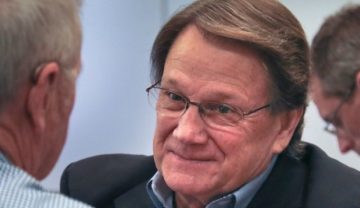 Have you been paying attention to the chaos at hand with the Louisiana Department of Wildlife and Fisheries? It appears that there is a full three-ring circus going on with DWF and its secretary, the former Democrat congressman Charlie Melancon. And after eight months on the job it’s pretty clear that perception among the in-the-know crowd was largely correct. The department is awash in controversy, if not criminality, and those affected by it are furious. To full explain this, we should go back several years to a program set up at the federal level. The Gulf of Mexico Fishery Management Council, which is a federal commission set up to govern offshore fishing in the five Gulf states (Florida, Alabama, Mississippi, Louisiana and Texas), and the National Marine Fisheries Service set up something called the Individual Fishing Quota system, or IFQ, to govern commercial fishing for red snapper. Meaning, the federal government resorted to crony capitalism as a means to govern Gulf red snapper fisheries. If you were a big player in the red snapper harvest before the program got started, you were one of the cronies and your incumbency would be protected. Read the story here. 19:20
Have you been paying attention to the chaos at hand with the Louisiana Department of Wildlife and Fisheries? It appears that there is a full three-ring circus going on with DWF and its secretary, the former Democrat congressman Charlie Melancon. And after eight months on the job it’s pretty clear that perception among the in-the-know crowd was largely correct. The department is awash in controversy, if not criminality, and those affected by it are furious. To full explain this, we should go back several years to a program set up at the federal level. The Gulf of Mexico Fishery Management Council, which is a federal commission set up to govern offshore fishing in the five Gulf states (Florida, Alabama, Mississippi, Louisiana and Texas), and the National Marine Fisheries Service set up something called the Individual Fishing Quota system, or IFQ, to govern commercial fishing for red snapper. Meaning, the federal government resorted to crony capitalism as a means to govern Gulf red snapper fisheries. If you were a big player in the red snapper harvest before the program got started, you were one of the cronies and your incumbency would be protected. Read the story here. 19:20
For Immediate Release – Hawaii Seafood Council: Hawaii Fishing Industry takes action to protect foreign crew from labor abuse
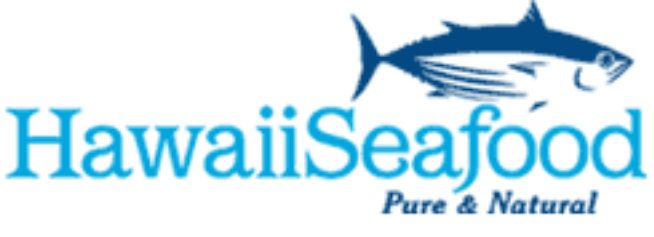 For Immediate Release Hawaii Seafood Council 1130 N Nimitz Hwy, Suite A263 Honolulu, Hawaii 96817 – Hawaii Longline Fishing Industry takes immediate action to assess and establish controls to protect foreign crew from forced labor and labor abuse. On September 8, 2016, an article was published by the Associated Press (AP) which included allegations of forced labor (slavery), human trafficking and poor working conditions on Hawaii longline fishing vessels that use foreign contracted crewmen. “The industry takes the AP report seriously, is actively assessing the situation and is committed to making certain that if found, forced labor and labor abuse is eliminated from the fishing industry” says Jim Cook, Hawaii fishing industry member and advocate. Read the press release, click here 17:46
For Immediate Release Hawaii Seafood Council 1130 N Nimitz Hwy, Suite A263 Honolulu, Hawaii 96817 – Hawaii Longline Fishing Industry takes immediate action to assess and establish controls to protect foreign crew from forced labor and labor abuse. On September 8, 2016, an article was published by the Associated Press (AP) which included allegations of forced labor (slavery), human trafficking and poor working conditions on Hawaii longline fishing vessels that use foreign contracted crewmen. “The industry takes the AP report seriously, is actively assessing the situation and is committed to making certain that if found, forced labor and labor abuse is eliminated from the fishing industry” says Jim Cook, Hawaii fishing industry member and advocate. Read the press release, click here 17:46
At one time, they were close collaborators. Great White Shark researchers spar over studies off Cape Cod
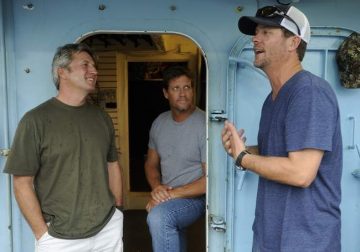 In 2012, OCEARCH operated under state Division of Marine Fisheries shark scientist Gregory Skomal’s federal permit to catch and tag great white sharks off Chatham. The next year, with Skomal again on board, the state allowed the big Alaskan crab boat the organization uses into state waters, less than 3 miles offshore. This June, citing concerns that any additional research on great white sharks within state waters could jeopardize a five-year population study led by Skomal, Division of Marine Fisheries Director David Pierce denied OCEARCH’s application for a research permit to catch great whites off Monomoy. “I’m concerned your proposed work would compromise our research by jeopardizing our study’s validity,” Pierce wrote to OCEARCH president Christopher Fischer in his June 30 letter denying the permit for state waters. In January, OCEARCH received a federal research permit from the National Oceanic and Atmospheric Administration’s highly migratory species program to capture and tag a total of 75 sharks of varying species, including eight great whites, anywhere from the Gulf of Mexico all the way up the Atlantic coast. Read the story here 14:16
In 2012, OCEARCH operated under state Division of Marine Fisheries shark scientist Gregory Skomal’s federal permit to catch and tag great white sharks off Chatham. The next year, with Skomal again on board, the state allowed the big Alaskan crab boat the organization uses into state waters, less than 3 miles offshore. This June, citing concerns that any additional research on great white sharks within state waters could jeopardize a five-year population study led by Skomal, Division of Marine Fisheries Director David Pierce denied OCEARCH’s application for a research permit to catch great whites off Monomoy. “I’m concerned your proposed work would compromise our research by jeopardizing our study’s validity,” Pierce wrote to OCEARCH president Christopher Fischer in his June 30 letter denying the permit for state waters. In January, OCEARCH received a federal research permit from the National Oceanic and Atmospheric Administration’s highly migratory species program to capture and tag a total of 75 sharks of varying species, including eight great whites, anywhere from the Gulf of Mexico all the way up the Atlantic coast. Read the story here 14:16
California sea otter population reaches record high number
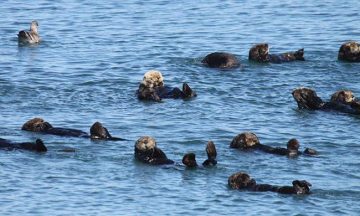 A growth in the amount of sea urchins, one of the otters’ favorite foods, seems to be the leading reason why otter numbers along the California coast have grown to 3,272 this year, up 11 percent since 2013, experts said as they released the latest survey. “The population is slowly but steadily recovering,” said Tim Tinker, a research biologist in Santa Cruz who leads the U.S. Geological Survey’s otter program. “And that’s good news because sea otters bring ecological benefits.”In fact, the otter population is likely at its highest level in at least 100 years, Tinker said. And for the first time, the otter numbers have exceeded 3,090, the total that the U.S. Fish and Wildlife Service says is needed to be met for three years in a row before they can be considered for removal from the endangered species list. Read the story here 13:45
A growth in the amount of sea urchins, one of the otters’ favorite foods, seems to be the leading reason why otter numbers along the California coast have grown to 3,272 this year, up 11 percent since 2013, experts said as they released the latest survey. “The population is slowly but steadily recovering,” said Tim Tinker, a research biologist in Santa Cruz who leads the U.S. Geological Survey’s otter program. “And that’s good news because sea otters bring ecological benefits.”In fact, the otter population is likely at its highest level in at least 100 years, Tinker said. And for the first time, the otter numbers have exceeded 3,090, the total that the U.S. Fish and Wildlife Service says is needed to be met for three years in a row before they can be considered for removal from the endangered species list. Read the story here 13:45

Is the Montauk Working Waterfront Threatened? Major Changes Waiting In Wings
For all the talk about how much Montauk has changed with the influx of wealthy part-timers, the planning consultants conducting the town’s hamlet studies say that what’s happened so far in the easternmost hamlet is a mere flicker of what is coming. And no place in Montauk has more potential for new development and large-scale redevelopment than the harbor area. Several large tracts of vacant commercial land—many of which are already for sale,,, Throughout the four days of charrettes—a semi free-form discussion between the development experts and residents common in long-term planning studies, the fishing industry’s root role in the Montauk harbor region was the anchor issue. Despite the upswell of surfing chic in recent years, the down-to-earth culture, economics and aesthetic of the fishing industry is Montauk’s defining characteristic and must be preserved, residents told the consultants repeatedly. “To lose the commercial fishing docks is to lose the essence of Montauk,” resident Andy Harris said. “The economic contribution of the commercial fishing industry in this town is incredible. They live in this town, they shop in this town, and they don’t go out to eat at restaurant groups that send the money back to New York City.” Read the story here 13:33
Editorial: President Obama waves his green wand
President Obama’s executive overreach isn’t confined to immigration or health care. He has now used his authority to place nearly 5,000 square miles of the Atlantic Ocean off-limits to commercial fishermen, future oil or gas exploration and potentially even limiting recreational fishing. And there was barely a whisper of protest from members of this state’s congressional delegation, who happily place the cause of climate change ahead of the interests of many of their own constituents — and don’t seem to object to being cut out of this process. Consultations with local officials were inadequate. There was no debate. There was, instead, heavy lobbying by environmentalists — and Obama’s 2008 pledge that his election would slow the rising of the seas. So here we are. U.S. Secretary of State John Kerry, who once represented the fishermen whose interests have been cast aside here, celebrated this designation at his big oceans conference last week, where he rubbed elbows not with the guys who fish for red crab and lobster in the now off-limits monument but with Leonardo DiCaprio. Gov. Charlie Baker, along with some state lawmakers and local officials, have objected to the unilateral designation. But in the end, when Team Obama has a desired end, you can be damn sure they will use it to justify the means. Read the rest here 13:06
Filmmaker John Hopkins says Bluefin tuna becoming ‘just like pets’!
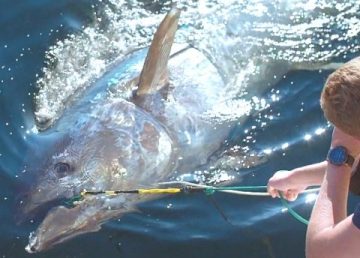 A new documentary on the Atlantic bluefin tuna says the giant fish are exhibiting unusual behaviour after they migrate into the Gulf of St. Lawrence, where some are being hand-fed by fishermen in the open ocean. “One of the things that has happened is they have lost their fear of human beings. They are just like pets. They are being fed over the side by fishermen,” said filmmaker John Hopkins of Square Deal Productions. The behaviour made filming the tuna much easier, he said, but it is puzzling. Hopkins’s National Film Board documentary, Bluefin, premieres at the Atlantic Film Festival on Wednesday. The 53-minute film chronicles the resurgence of bluefin tuna near the fishing port of North Lake, P.E.I., billed as the tuna capital of the world. Dalhousie University oceanographer Boris Worm likens the tuna returning to the Gulf of St. Lawrence to a last herd of buffalo roaming after the animal was wiped out everywhere else on the plains. Read the story here 11:26
A new documentary on the Atlantic bluefin tuna says the giant fish are exhibiting unusual behaviour after they migrate into the Gulf of St. Lawrence, where some are being hand-fed by fishermen in the open ocean. “One of the things that has happened is they have lost their fear of human beings. They are just like pets. They are being fed over the side by fishermen,” said filmmaker John Hopkins of Square Deal Productions. The behaviour made filming the tuna much easier, he said, but it is puzzling. Hopkins’s National Film Board documentary, Bluefin, premieres at the Atlantic Film Festival on Wednesday. The 53-minute film chronicles the resurgence of bluefin tuna near the fishing port of North Lake, P.E.I., billed as the tuna capital of the world. Dalhousie University oceanographer Boris Worm likens the tuna returning to the Gulf of St. Lawrence to a last herd of buffalo roaming after the animal was wiped out everywhere else on the plains. Read the story here 11:26
Brunswick shellfish harvesters work to remove ‘vicious clam predator’
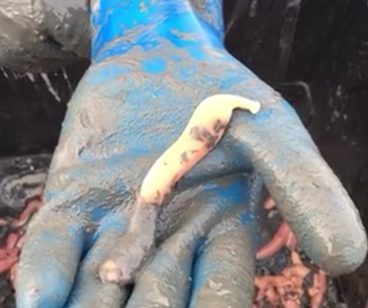 Brunswick Marine Resources says shellfish harvesters took to the Brunswick clam flats Sunday to remove a “vicious clam predator that’s been wreaking havoc” in Maine’s intertidal zone in recent years. The milky ribbon worm is believed to be causing moderate mortality to the soft shell clam population, according to the Brunswick Marine Resources. The worms are found primarily in the clam beds and are stumping resource managers on how to mitigate the problem. In the meantime, the Brunswick Marine Resources says harvesters are doing all they can to save some of their most productive flats. See the video here 09:48
Brunswick Marine Resources says shellfish harvesters took to the Brunswick clam flats Sunday to remove a “vicious clam predator that’s been wreaking havoc” in Maine’s intertidal zone in recent years. The milky ribbon worm is believed to be causing moderate mortality to the soft shell clam population, according to the Brunswick Marine Resources. The worms are found primarily in the clam beds and are stumping resource managers on how to mitigate the problem. In the meantime, the Brunswick Marine Resources says harvesters are doing all they can to save some of their most productive flats. See the video here 09:48
Hawaii longline industry creates task force to respond to allegations of human trafficking and poor working conditions.
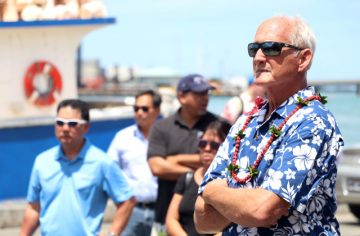 Hawaii longline industry leaders say they have formed a task force and hired an expert on slavery in response to media reports about human trafficking, forced labor and poor working conditions aboard some of their boats. “We’re trying to get a sort of fleet assessment, get our arms around the problem and see where we’re going to take it,” said Jim Cook, who owns several longline fishing boats and serves on the Hawaii Longline Association board of directors. He said Monday that the goal is to weed out the “bad actors,” in part by requiring a universal crew contract that incorporates international norms to address forced labor. That contract is being finalized and should be “ready to rock” in the next couple days, Cook said. The task force also includes John Kaneko, program manager of the Hawaii Seafood Council, Khang Dang, president of Quota Management, and Katrina Nakamura, who was also hired as a consultant to provide guidance to the industry. Read the story here 08:25
Hawaii longline industry leaders say they have formed a task force and hired an expert on slavery in response to media reports about human trafficking, forced labor and poor working conditions aboard some of their boats. “We’re trying to get a sort of fleet assessment, get our arms around the problem and see where we’re going to take it,” said Jim Cook, who owns several longline fishing boats and serves on the Hawaii Longline Association board of directors. He said Monday that the goal is to weed out the “bad actors,” in part by requiring a universal crew contract that incorporates international norms to address forced labor. That contract is being finalized and should be “ready to rock” in the next couple days, Cook said. The task force also includes John Kaneko, program manager of the Hawaii Seafood Council, Khang Dang, president of Quota Management, and Katrina Nakamura, who was also hired as a consultant to provide guidance to the industry. Read the story here 08:25
Fish Harvesters from around west coast attend meeting in Corner Brook to support FISH-NL
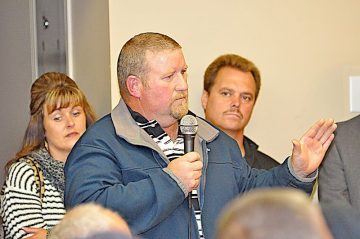 Bruce Short was not one of the ones who needed convincing. The Beaumont, Long Island fisherman drove three hours to the Royal Canadian Legion in Corner Brook on Monday to attend a meeting on the formation of a new union to represent fish harvesters in the province. “This is the most exciting day in my life, to see that the fishermen in this province are starting to get a backbone,” Short said just minutes after addressing the crowd of about 250 men and women with his support of the new FISH-NL, the Federation of Independent Sea Harvesters of Newfoundland and Labrador. He said it was time to get rid of the regime of the Fish, Food and Allied Workers (FFAW) union, a group he called “just a Mafia.” Read the story here 08:01
Bruce Short was not one of the ones who needed convincing. The Beaumont, Long Island fisherman drove three hours to the Royal Canadian Legion in Corner Brook on Monday to attend a meeting on the formation of a new union to represent fish harvesters in the province. “This is the most exciting day in my life, to see that the fishermen in this province are starting to get a backbone,” Short said just minutes after addressing the crowd of about 250 men and women with his support of the new FISH-NL, the Federation of Independent Sea Harvesters of Newfoundland and Labrador. He said it was time to get rid of the regime of the Fish, Food and Allied Workers (FFAW) union, a group he called “just a Mafia.” Read the story here 08:01



































